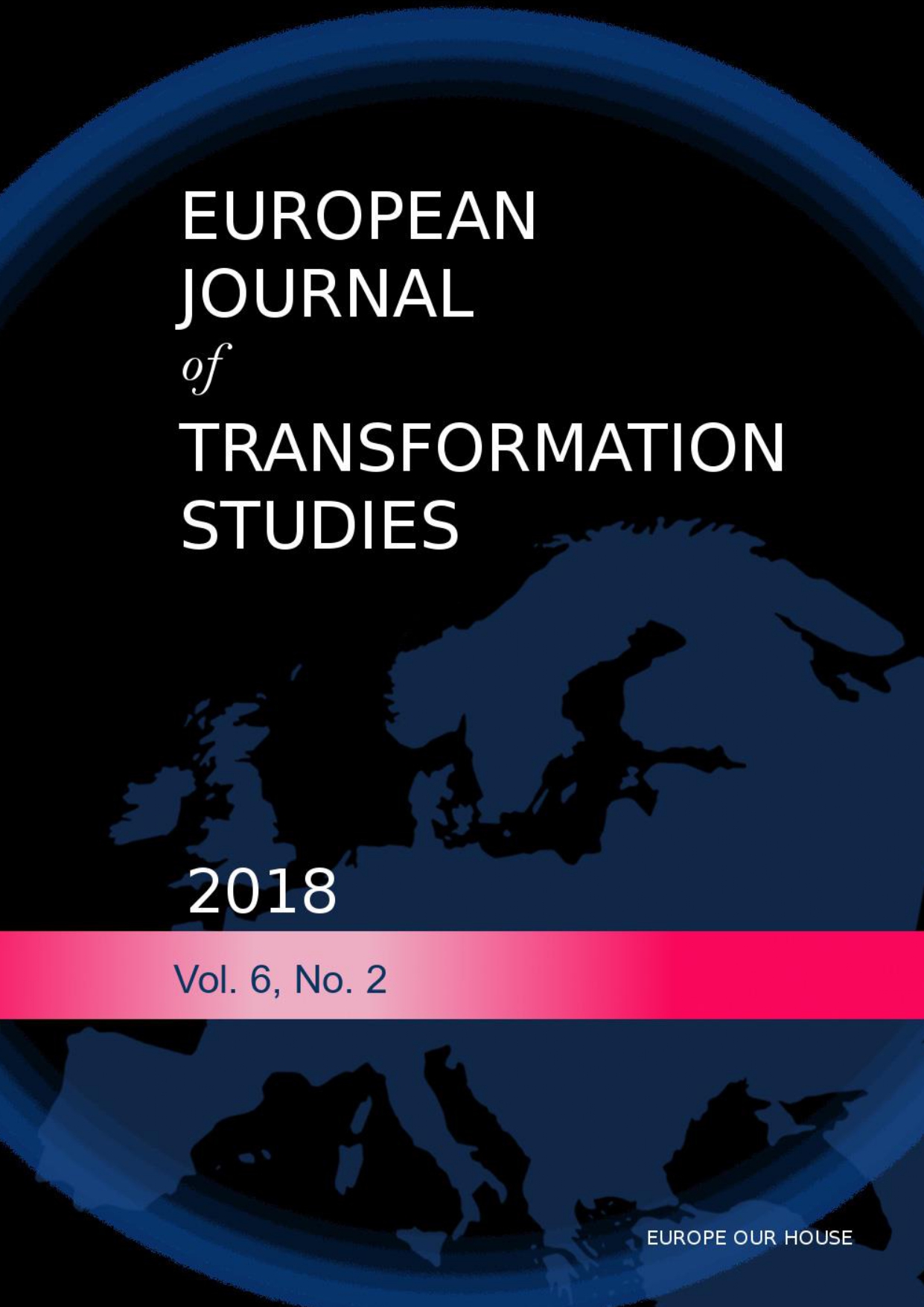Modern information models of the national interests' protection policy of the world countries
Słowa kluczowe:
models of information policy, national interests, national interests’ protection policyAbstrakt
The paper generalized experience of formation and implementation of the informational direction of policy on protecting national interests of the states and supranational organizations. Authors formed two models – subsidiary (US, UK, EU and NATO) and vertical (Russia) on the base of generalization. Transitional model of the development and implementation of the informational direction of policy on protecting national interests in the conditions of nonlinear processes was proposed. The model reflects modern transformation of Ukraine and transition from a vertical to a subsidiary model.
Downloads
Bibliografia
Baudrillard, J., (2016), Simulacra and simulation, Postum, Moscow.
Chaltseva, O.M., (2015), Spatial dimensions of public policy, in Actual problems of policy collection of scientific works, Vol. 56, pp. 21–31, Phoenix, Odesa.
Counselor Program, Counselor for HIP, (2017), Available at: http://www.radnyk.org/pro–prohramu.html [Access 27-03-2017].
Danylenko S.I. (2015). Mental-cultural and political consequences of Russia's information aggression against Ukraine and ways of overcoming it, in Problems of International News, Vol. 10-11, pp. 303-315, National Taras Shevchenko University, Kyiv.
Deutsch, K.W., (1993), The nerves of government: models of political communication and control, Mysl', Moscow.
Fuerth, L., (2011), Operationalizing Anticipatory Governance, in Prism, 2, Vol. 4, pp. 31–46, Available at: http://cco.ndu.edu/Portals/96/Documents/ prism/prism_2–4/Prism_31-46_Fuerth.pdf [Access 17-08-2018].
Habermas, Y., (2007), Theory of communicative action (Fragments), in Questions of Social Theory, Vol. 1, Issue 1, pp. 229-245, Institute of Philosophy, Russian Academy of Sciences, Moscow.
Horbulin, V.P, Kachinsky, A.B, (2010), Strategic Planning: Solving National Security Problems. Monograph, NISS, Kyiv.
Huberskyi, L.V., Kaminsky, Y.E., Makarenko, Y.A., Ozhevan, M.A, Shnirkov, O.I, (2007), Information Policy of Ukraine: European Context, Lybid, Kyiv.
Komarova, Y., (2005), Acts aspect of the analysis of structural self-regulatory polity systems, in Policinic Management, Vol. 1., pp. 97-112, Ukrainian Center for Political Management, Kyiv.
Kutz, G.M., (2017), Priority Strategies for Information Policy in the Context of Ukraine's National Interest: Liberal Perspective, in Political Life, Vol. 3, pp. 52-58, Vasyl' Stus Donetsk National University, Vinnytsia.
Lipkan, V.A., (2006), Theoretical Foundations of Elements of National Bases of Ukraine: Monograph, Text, Kyiv.
Lyakhovenko, O.I, (2009), J. O'Toal; Critical geopolitics and its critics, in Political Science, Vol. 1, pp.178-187, MO RAAP, Moscow.
Mahda, Y., (2017), Hybrid aggression in Russia: lessons for Europe, KALAMAR, Kyiv.
Morgenthau, G., (2000), Political Relations between Nations. The struggle for power and peace, in Political science: Reader, ed. Vasilik, M.A, pp. 743-754, Gardariki, Moscow.
Moskalova, N., (2016), Concepts of national interest in scientific literature, in the Bulletin of the Donetsk National University. Series Political Science, pp. 29–32, Available at: http://jvestnik–politology.donnu.edu.ua/article/view/3931/3964 [Access 17-08-2018].
Nahorniak, T. L., (2013), Branding of Territories as State and Regional Policy: Monograph, Sighting, Nouillage, Donetsk.
Ozhevan, M.A., (2016), Global Strategy for Strategic Narratives: Challenges and Risks for Ukraine, in Strategic Priorities. Series: Politics, Vol. 4, pp. 30-40, National Institute for Strategic Studies, Kyiv.
Pocheptsov, G. (2016), Senses and Wars: Ukraine and Russia in Information and Semantic War, Publishing House of the Kyiv-Mohyla Academy, Kyiv.
Polovyi, M.A, (2011), Political Processes: Theory and Practice of Modeling: Monograph, Phoenix, Odesa.
Prorok, V., (2016), Theory of Chaos and Network Theory - New Approaches to Modeling the Political System, in PolitBook, Vol. 1, pp. 83-91, Research Institute of Social and Political Sciences, Cheboksary.
Smola, L.E., (2016), Information and Hybrid Warfare Aspects in the Application of Communication Technologies, S.P.A.C.E. Society, Politics, Administration in Central Europe: An Electronic Science and Practice Magazine, Vol. 1 pp. 48-53, NU "OLA", Odesa.
Taleb, N., (2014), Anti-fragility. How to benefit from chaos, Azbuka-Attikus, Moscow.
Tykhomirova, Y.B, (2016), Regional Policy of the European Union: Information and Communication Aspects, in US and European Regional Strategies: Foreign Policy and Security Dimension: Monograph, pp. 425-500 Center Free Press, Kyiv.
Toffler, E., (2009), Metamorphoses of Power: Knowledge, Wealth and Power on the Threshold of the 21st Century, AST: ASTTMOSKVA, Moscow.
Turchenko, O.G. (2013), Concerning the identification of categories of "interest" and "national interest" as objects of security, in the Journal of Journalism of Donetsk University: Journal of Science, Vol. 1 pp. 61-66, Donetsk National University, Donetsk.
Vnuchko, S.M, (2012), Political Space in a Global Dimension, in the Bulletin of Taras Shevchenko Kyiv National University, pp. 47-51, National Taras Shevchenko University, Kyiv.
Zamiatin, D.N, (2014), Space and Motion, in Sociological Studies, Vol. 4, pp. 20-29, Institute of Sociology, Russian Academy of Sciences, Moscow.

 Uniwersyteckie Czasopisma Naukowe
Uniwersyteckie Czasopisma Naukowe



